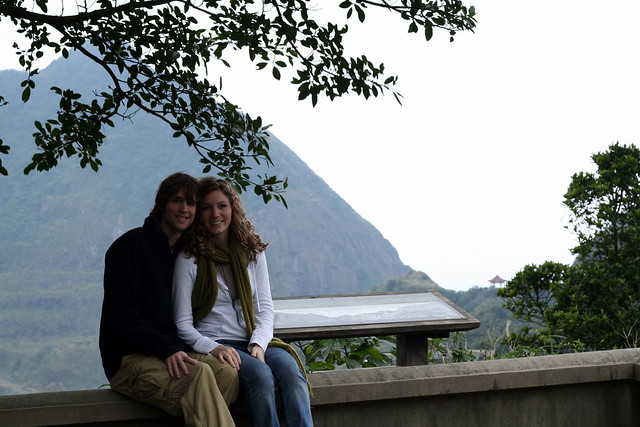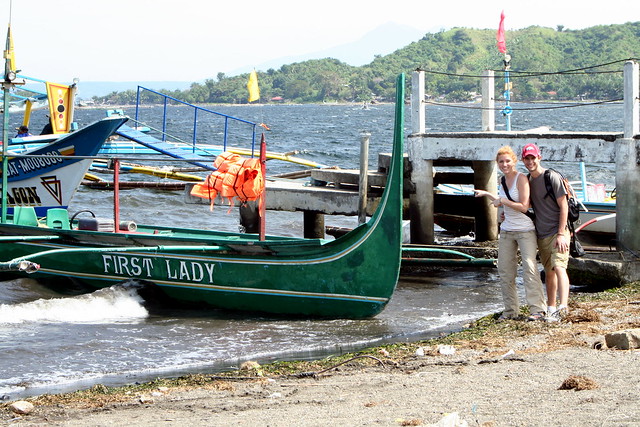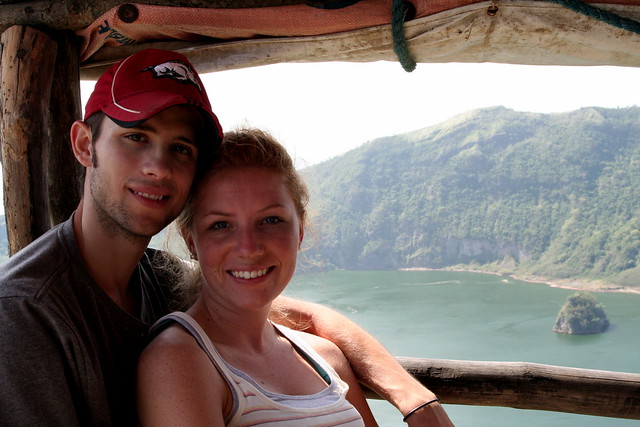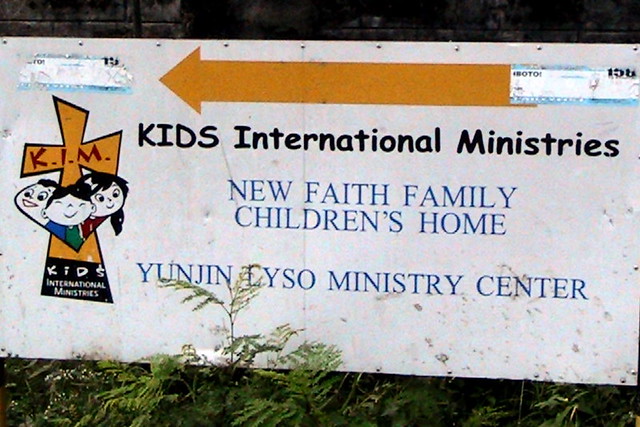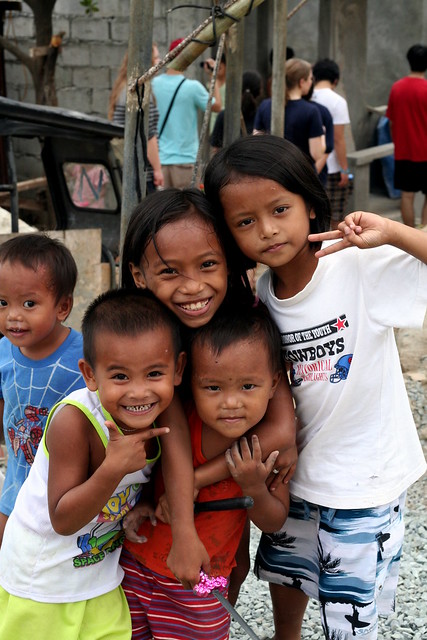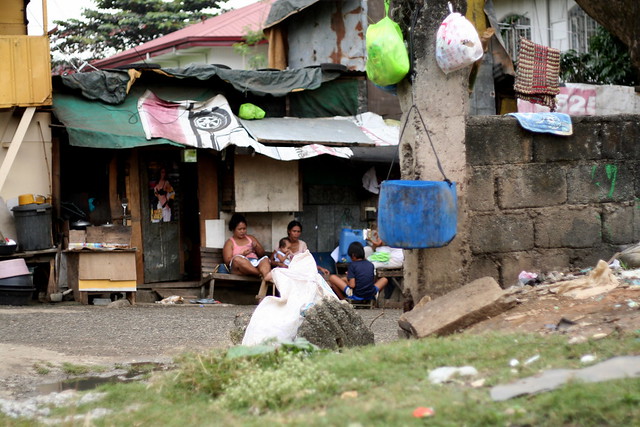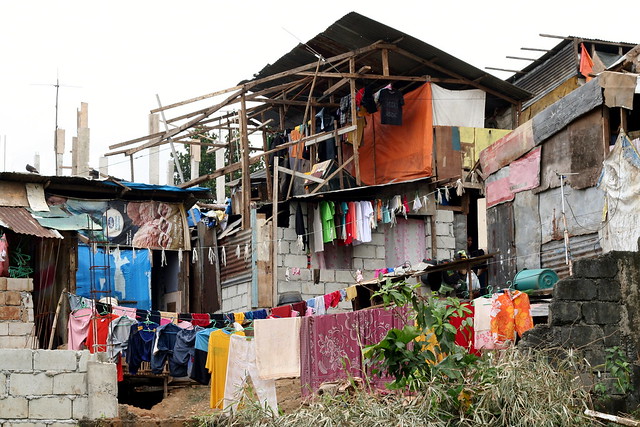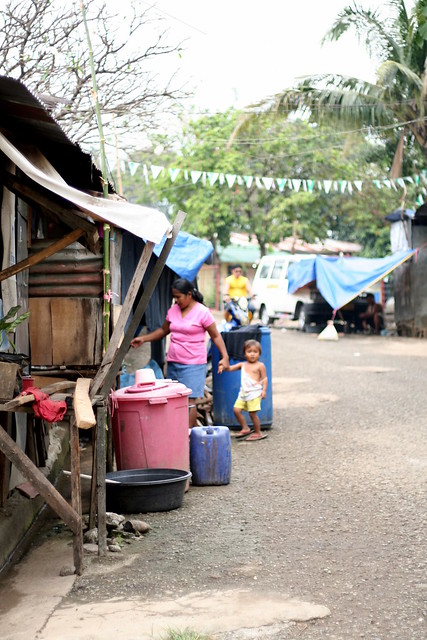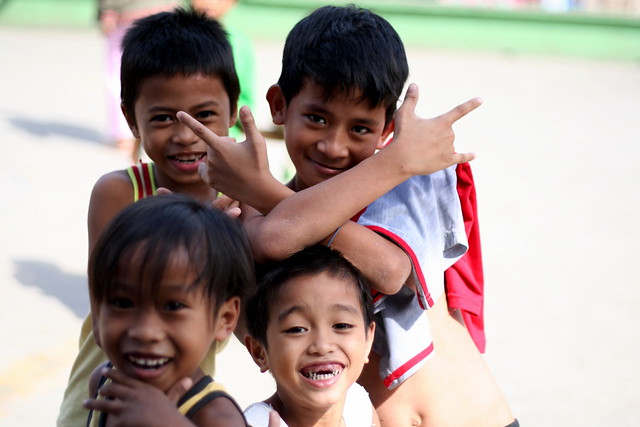Thursday, February 24, 2011
Prayer Update
Praise
- We are grateful for the time we were able to spend in the Philippines. The Lord used it to show us a great ministry, open our eyes to future ministry opportunities, and further grow us.
- I (Ben) have been able to pick up two more classes which increases my working hours substantially. We are thankful for this as it helps us to better save for our upcoming seminary expenses.
- We continue to be thankful for our time here in Taiwan.
Prayer
- Please continue to pray for us as we seek to work out many details related to our move back and beginning school again. Specifically, we are praying for a good housing situation (i.e. one that is affordable as the Chicagoland area is quite expensive). In relation to this, please ask the Lord to help us to be faithful in trusting Him for the provision that is needed.
- Life here has been busy with Beth taking a statistics course, Chinese lessons, and teaching, as well as my increased work schedule. Pray that we would manage our time well.
- Pray for our relationships with our Taiwanese friends here, that we would be the aroma of Christ to them.
We are so thankful for your prayers and encouragement.
Labels:
prayer
Tuesday, February 22, 2011
Vacation in the Philippines
It wasn't all work...we also got a chance for some rest and relaxation. While there, we were able to bask in the waters of a 60 ft. waterfall and see the world's smallest, active volcano.
Darnak Falls
The unique thing about Taal Volcano is that it is a volcano within the lake of a volcano within the lake of a volcano.
Our mode of transportation.
So while we enjoyed working with KIM, we also appreciated these opportunities to
rest.
rest.
Labels:
travels
Wednesday, February 16, 2011
Sunday, February 13, 2011
Kids International Ministries
This past trip was my second to the Philippines. I first went for my visa run back in October, and it was a whirlwind of a trip with little time to see anything. I was, however, able to get a glimpse of Kids International Ministries. The two hours I spent there gave me the desire to go back. I came home from that first trip and said,
"Babe, let's go to the Philippines for Chinese New Year."
I think she was thinking,
"WHAT?!?! Of all the places we can go, why would we go there?"
To her credit, after I explained the purpose, she was all on board. The reason we decided to go to the Philippines over our Chinese New Year holiday was to see what Kids International Ministries was all about and to help out where needed. Our secondary goal was to get a bit of a vacation before starting our second semester of teaching. Thankfully, we were able to accomplish both goals.
You might be curious how we came across Kids International Ministries. One of the nice things about coming from a family that has been in ministry for two generations is that you find connections all over the world. Jeff Long, the founder of KIM, grew up in the church that my grandfather pastored and then went to college with my parents. It's always exciting to randomly find someone in another part of the world that your family knows.
After arriving in Manila, our eyes were opened to the extent of poverty that many Filipinos live in. They are often caught in a downward spiraling cycle that has been going on for generations. The men use their meager income on cockfights, cigarettes, and beer. They then proceed to go home and abuse their families. The women spend their time in idleness or gambling. These people live every day in despair, hopelessness, and spiritual darkness. These are the people that KIM seeks to reach.
KIM was started by Jeff and his family in 2003. As the story goes, the family was eating dinner at a fast food restaurant when some street kids came along asking for help. One of the Long children, who was quite young at the time, adamantly stated,
"Dad, I just don't understand why we can't do more for these kids."
In an effort to do more for these kids, KIM was born.
After 7 years of operation, KIM is involved in a whole host of things. Situated in a shack community, KIM helps through regular community feedings, medical aid, a dental clinic, taking care of pregnant women, schools for those who can't afford it, trades education, literacy education, discipleship, sports outreach, prison ministry, Jeepney (a street magazine that is designed to provide jobs for the poor and articles about the plight of the poor), and a couple of children's homes. Really, the better question seems to be...what do they not do?
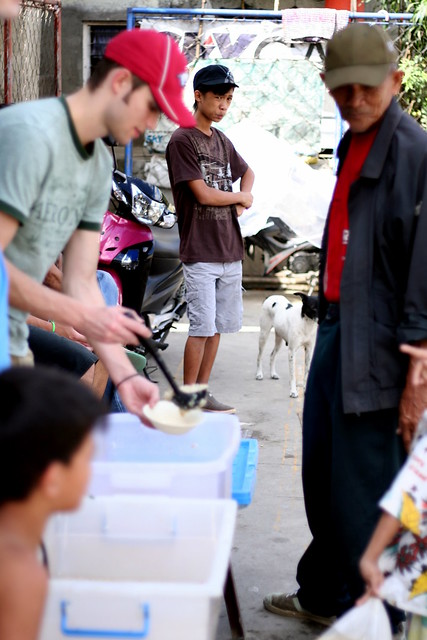
You may be asking, How do they have the time and manpower for all of this? That's a great question. First of all, KIM seeks to carry out these ministries through the local church. Secondly, KIM is remarkable at utilizing short-term teams. In fact, much of the work that is done could not be done without the help of short-termers. KIM is great at asking people how they are gifted, and encouraging them to plug in wherever they would be best suited. There is a constant flow of people who help in a variety of ways. This is something that I enjoyed seeing. In many places throughout the world, short-termers are more of a hindrance than a help to established missionaries. That's not the case here.
There are a number of things we appreciated about KIM. One of which was the way they focus on integrating the spiritual and material needs of people. We mentioned this in an earlier post, but I believe it warrants rementioning simply because of the fact that there aren't many ministries that do this well. They seem to put thought and emphasis into helping people in a wholistic manner. I remember Jeff saying once,
"It's hard for people to be interested in hearing about Jesus when their tooth is hurting."
Can't argue with that.
We left feeling burdened and heavy from the things that we saw but also encouraged that the Lord is at work through the missionaries of KIM.
We left feeling burdened and heavy from the things that we saw but also encouraged that the Lord is at work through the missionaries of KIM.
Friday, February 11, 2011
the Philippines, in photos
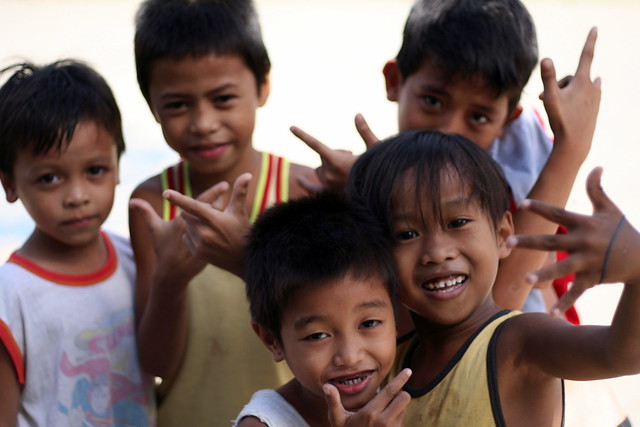
The street kids loved having their photos taken, and then came running over to have a look themselves.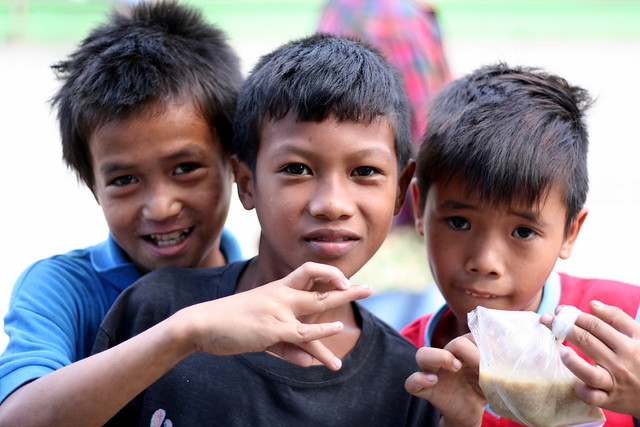
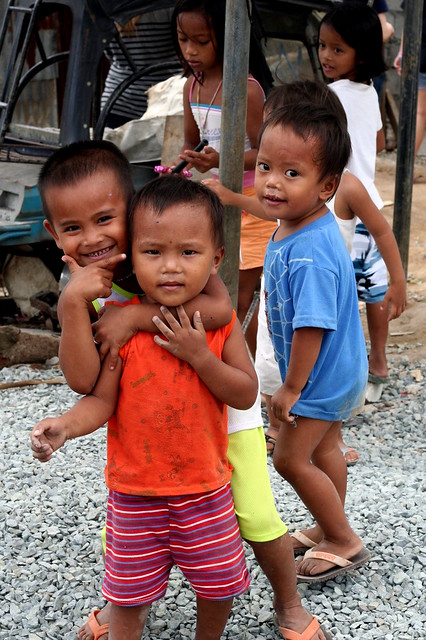
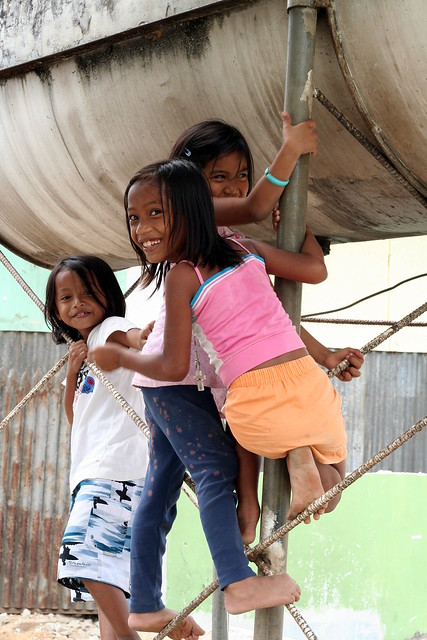

I spent a few days (and a long night) here, at KIM's children's home.



This little guy is three weeks old.

I spent most of one night caring for Cedric, who is six months old and only 8 lbs. He stole my heart.

Yuki and I hit it off quite literally when the corner of his juice bottle smacked into the bridge of my nose. We were fast friends.

Ben loves Jacob, most especially for his hair.

Princess and I played on the swings until she fell asleep in my lap. Later that day, I helped her wash and comb her hair before her nap. Precious moments.
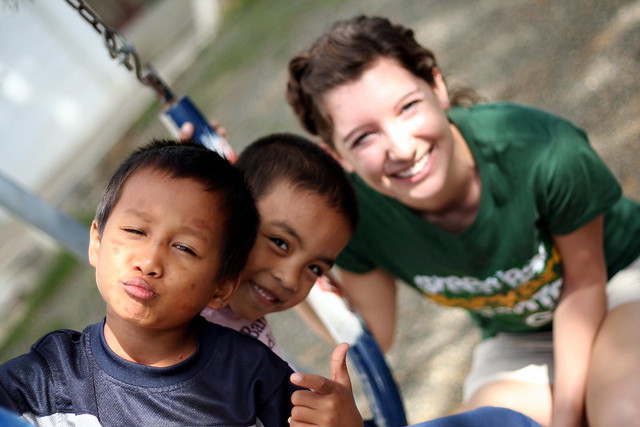
Kayt and I enjoyed playing...
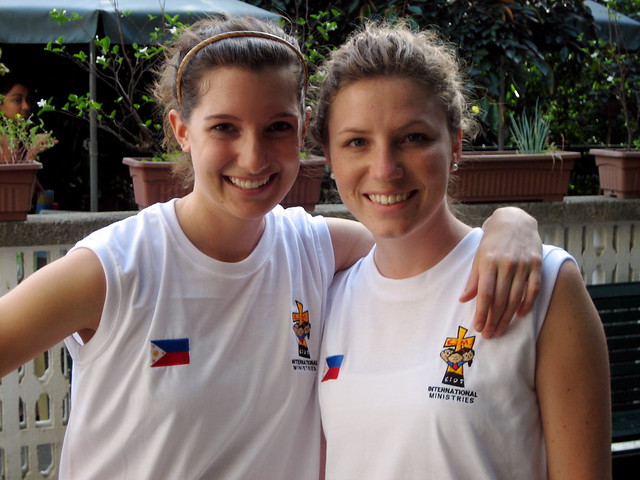
...and running in a 5k put on by KIM to
break the cycle of poverty through education.

We were blessed with some time to travel outside of Manila.

We were blessed with some time to travel outside of Manila.
Early morning at Taal Volcano.
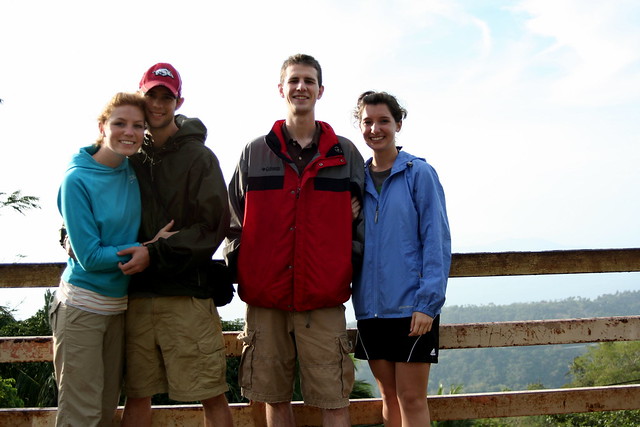
our fellow Asia adventurers

this boat ride was my favorite part of the whole trip

at the American Cemetery in Manila

Oh... and this happened to my hair. It's a long story. I'll tell you someday.

Ben and I overlooking Manila at Faith Academy.

our fellow Asia adventurers

this boat ride was my favorite part of the whole trip

at the American Cemetery in Manila

Oh... and this happened to my hair. It's a long story. I'll tell you someday.

Ben and I overlooking Manila at Faith Academy.
a sunset over Manila
Five days later, we boarded a plane, and arrived home in Taipei.
Labels:
photography,
travels
Thursday, February 10, 2011
Chinese New Year
I copied and pasted an article from http://www.gio.gov.tw/taiwan-website/5-gp/culture/lunar-NY/ to give a brief overview of Chinese New Year.
Lunar New Year in Taiwan
The Lunar New Year is the most significant festival for ethnic Chinese around the world, wherever they come from. It is a very jubilant occasion mainly because it is the time when people take a break from work to get together with family and friends.
The origin of the Lunar New Year Festival can be traced back thousands of years, involving a series of colorful legends and traditions. One of the most famous legends is Nian 年, an extremely cruel and ferocious beast that the ancients believed would devour people on New Year’s Eve. To keep Nian away, red-paper couplets are pasted on doors, torches are lit, and firecrackers are set off throughout the night, because Nian is said to fear the color red, the light of fire, and loud noises. Early the next morning, as feelings of triumph and renewal fill the air at successfully keeping Nian away for another year, the most popular greeting heard is gong xi 恭喜, or “congratulations.”
Even though Lunar New Year celebrations generally last for only several days, starting on New Year’s Eve, the festival itself is actually about three weeks long. It begins on the twenty-fourth day of the twelfth lunar month, the day, it is believed, when various gods ascend to heaven to pay their respects and report on household affairs to the Jade Emperor, the supreme Taoist deity. According to tradition, households busily honor these gods by burning ritualistic paper money to provide for their traveling expenses. Another ritual is to smear malt sugar on the lips of the Kitchen God, one of the traveling deities, to ensure that he either submits a favorable report to the Jade Emperor or keeps silent.
Next, “spring couplets” are hung up around the house. Spring couplets are paper scrolls and squares inscribed with blessings and auspicious words, such as “good fortune,” “wealth,” “longevity,” and “springtime.” The paper squares are usually pasted upside down, because the Mandarin word for “upside down,” dao, is a homonym of the word “arrival.” Thus, the paper squares represent the “arrival” of spring and the “coming” of prosperous times.
On Lunar New Year’s Eve, family members who are no longer living at home make a special effort to return home for reunion and share in a sumptuous meal. At that time, family members hand out hong bao, or “lucky money” in red envelopes, to elders and children. They also try to stay up all night to welcome the New Year, as it has long been believed that by so doing on New Year’s Eve, their parents would live a longer life. Thus, lights are kept on the entire night—not just to drive away Nian, as in ancient times, but also to make the most of the family get-together. In addition, some families even hold religious ceremonies after midnight to welcome the God of the New Year into their homes, a ritual that is often concluded with a huge barrage of firecrackers.
The first order of business on Lunar New Year’s Day is offering ritual homage to one’s ancestors. Reverence is then paid to the gods, followed by younger family members paying their respects to their living elders. New clothes are worn, and visits are made to friends, neighbors, and relatives to exchange good wishes of gong xi fa cai 恭喜發財, which means “congratulations and prosperity.” As an occasion for reconciliation, it is a time when old grudges are cast aside amid an atmosphere of warmth and friendliness.
One of the most spectacular sights during the Lunar New Year Festival is the dragon and lion dance. The heads of these fearsome beasts are supposed to ward off evil, and the nimble movements of the dancers provide a grand spectacle enjoyable to everyone.
The second day of the Lunar New Year Festival is the day that married daughters return to their parents’ home. If she is a newlywed, her husband must accompany her and bring gifts for her family. According to a charming legend, the third day of the Lunar New Year is the day when mice marry off their daughters. Thus, on that night, people are supposed to go to bed early so that the mice can perform their wedding ceremonies.
On the fourth day, the fervor begins to ebb. In the afternoon, people prepare offerings of food to welcome the return of the Kitchen God and his retinue from their trip to the Jade Emperor’s court. The Kitchen God’s return signifies the end of freedom from spiritual surveillance, hence the popular saying: “It’s never too early to send off the gods, and never too late to invite them back.”
Day five almost brings the Lunar New Year festivities to a close. All offerings are removed from the altars and life returns to normal. Finally, on the ninth day, numerous offerings are set out in the forecourt or central courtyard of temples to celebrate the birthday of the Jade Emperor, who was believed to have been born immediately after midnight on the ninth day.
As in all such festivals, food plays an important role throughout the Lunar New Year Festival, and dinners tend to be especially lavish. Many of the dishes made at this time are served because they are regarded as symbols of good luck. For instance, fish (yu) represent “having enough to spare,” garlic chives (jiu cai) stand for “everlasting,” turnips (cai tou) mean “good omens,” and fish balls (yu wan) and meat balls (rou wan) represent “reunion.” Auspicious refreshments are also prepared at this time, such as glutinous rice flour pudding (nian gao), which is said to make people “advance toward higher positions and prosperity step by step.” People usually have dumplings (shui jiao) too, which look like shoe-shaped gold and are supposed to help those who eat them to amass fortunes and wealth.
The Lunar New Year Festival is not all freewheeling fun, however, and certain negative superstitions and taboos at this time have never quite lost their pervasive force. For example, people believe it is unlucky to sweep the floor during the first five days of the Lunar New Year, because one might accidentally sweep one's good luck and wealth out of the house. Bad language and talk of death are severely frowned upon. If a dish is broken, it is vital to say sui sui ping an 歲歲平安, which means "peace throughout the year," as quickly as possible. Joss sticks and altar candles must be kept burning day and night to encourage longevity; and in some households, knives and scissors are put away so that no one will accidentally cut the "thread of good luck" in the year to come.
A few of these superstitions and rituals have a spiritual aspect to them, and all of Taiwan’s temples are usually very busy during this time of year as large numbers of people crowd into them with elevated incense sticks to pray for good luck. Indeed, some of the major temples close their main gates before midnight on Lunar New Year’s Eve as noisy and expectant crowds gather outside. At the stroke of midnight, the doors are thrown wide open and people surge forward in an attempt to be the first to place their incense sticks into the censer, as another long-standing tradition states that the first person to do so will be blessed with good luck throughout the coming year.
Although some of the Lunar New Year’s magic has worn off in Taiwan because of the island’s steady march toward industrialization, the festival and accompanying celebration are still unrivaled in importance. Long before the holiday, street vendors have already begun to seek out the best sites to display their “spring couplets.” Shopping for Lunar New Year’s fare also begins early and is still one of the holiday’s most characteristic activities in Taiwan. For instance, Taipei’s Dihua Street in an older part of town, which is renowned for its foodstuffs, often bustles with people buying groceries for the Lunar New Year Festival. Familiar songs and traditional music associated with Lunar New Year are broadcast through loudspeakers in department stores, many of which hold year-end sales to attract wage earners, whose pockets are weighted down by the traditional annual bonus that is always paid at this time of year.
Thus, several days before Lunar New Year’s Eve, people living far away from their families begin to prepare for their journey home. In an attempt to beat the traffic jams, many hit the road on the previous day. Those relying on public transportation will often camp out in sleeping bags at airports, train stations, and bus terminals to ensure that they get reservations for the dates they want, as tickets are usually snapped up the second they go on sale. Trains, buses, and planes are always packed. No matter how grueling the journey may turn out to be, though, all of the inconveniences are considered to be worth it once the family has gathered around the table to eat their Lunar New Year’s Eve dinner, the most important meal of the year. Indeed, no matter what changes may occur over time, the notion of getting together with the family will always lie at the heart of Lunar New Year celebrations.
Monday, February 7, 2011
Man vs. Food: Balut
On this episode of Man vs. Food, we journey to one of the farthest corners of the globe, the Philippines. In this far-off destination we are ready to push the boundaries farther than ever before. The food is called Balut. According to Wikipedia:
"A balut is a fertilized duck (or chicken) egg with a nearly-developed embryo inside that is boiled and eaten in the shell. Popularly believed to be an aphrodisiac and considered a high-protein, hearty snack, balut are mostly sold by street vendors in the regions where they are available. It is commonly sold as streetfood in the Philippines...In the Philippines, balut eaters prefer salt and/or a chili and vinegar mixture to season their egg. The eggs are savored for their balance of textures and flavors; the broth surrounding the embryo is sipped from the egg before the shell is peeled, and the yolk and young chick inside can be eaten. All of the contents of the egg may be consumed, although the white may remain uneaten: Depending on the age of the fertilized egg, the white may have an unappetizing cartilaginous toughness."
The mental part is the toughest, but the taste really isn't that bad.
"A balut is a fertilized duck (or chicken) egg with a nearly-developed embryo inside that is boiled and eaten in the shell. Popularly believed to be an aphrodisiac and considered a high-protein, hearty snack, balut are mostly sold by street vendors in the regions where they are available. It is commonly sold as streetfood in the Philippines...In the Philippines, balut eaters prefer salt and/or a chili and vinegar mixture to season their egg. The eggs are savored for their balance of textures and flavors; the broth surrounding the embryo is sipped from the egg before the shell is peeled, and the yolk and young chick inside can be eaten. All of the contents of the egg may be consumed, although the white may remain uneaten: Depending on the age of the fertilized egg, the white may have an unappetizing cartilaginous toughness."
The mental part is the toughest, but the taste really isn't that bad.
yes, Packers.

Not gonna lie. I kinda wish I was in Green Bay right now. In all honesty, celebrating my hometown team's world championship title is just not quite the same here in Taiwan. No madness, mayhem, holiday, or parade through the whole town. In fact, most people here are a bit oblivious to...well, definitely this cherished (and over-hyped) American sporting event... but more importantly, to my sheer amazement and delight over my team's ultimate success this year.
Shocking, I know.
But someone has to hold the torch here in Taiwan, right? We did enjoy watching the game this morning with a surprising number of friends and Packer fans. But I do miss my crazy family celebrations (a shout out to my aunts Twila, Lyn, Deb, and Ellayne, who are undoubtedly the loudest fans in all of Wisconsin) and my favorite Packer fan, Dad. So while you're all raising your glasses, think of me, okay?
Cheers!
Sunday, February 6, 2011
Aaaaaand.... we're back!
We just got back into Taipei early Thursday morning. In two words, our trip was both challenging and enjoyable. For about five days, we stayed in Manila with a ministry called Kids International Ministries. Beth and I agreed that neither of us has seen a ministry that is as good at simultaneously meeting the material and spiritual needs of people as K.I.M. More to come on this later...
Subscribe to:
Posts (Atom)

